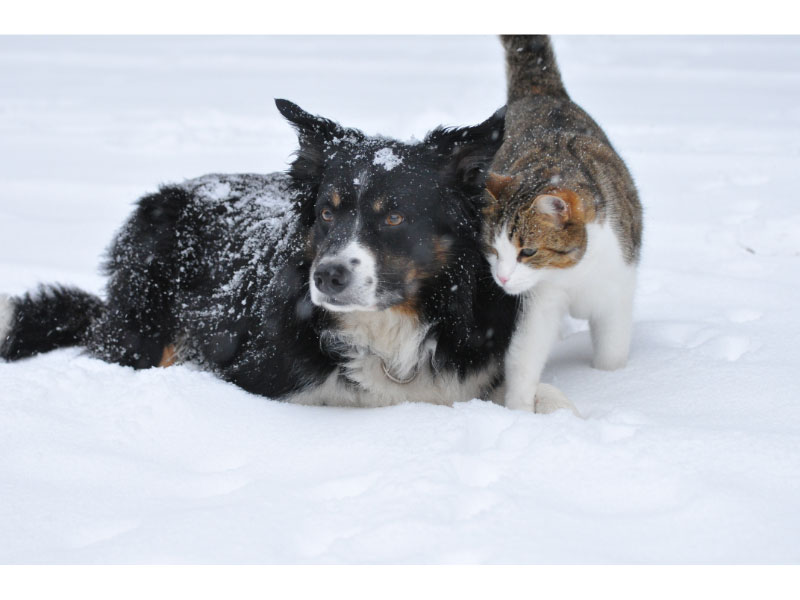
Just like people, dogs and cats can experience uncomfortably dry skin in the winter. Learn how to spot dry winter skin, when it could be another skin issue, and what you can do to help your pet’s skin stay healthy and itch-free.
Why Do Some Pets Get Dry, Itchy Skin in the Winter?
The stratum corneum or moisture barrier is the topmost layer of your pet’s skin. It’s made up of dead skin cells and lipids (fats, waxes, and oils) that help keep the skin from drying out.
But exposure to cold air, which holds onto little moisture, draws water out of the skin, even with a healthy skin barrier.
When your pet is indoors, they’re likely exposed to forced or central heating, which, too, creates low humidity conditions that draw moisture from their skin. That’s why even pets that spend little or no time out in the cold can still experience dry skin in the winter.
Treat Dry Winter Skin in Pets
Often, you can treat a simple case of dry winter skin at home.
Add healthy fats to your pet’s diet.
Omega-3 fatty acids can promote lipid production in the skin’s barrier and help retain moisture.
Avoid frequent bathing.
Bathe your pet no more than 1-2 times monthly to avoid stripping the skin’s moisture barrier.
Use moisturizing pet shampoo and conditioner.
Only use products for pets, as human shampoos are often too harsh and acidic for your pet’s skin.
Apply leave-on conditioners and skin relief products.
Your pet should experience near-instant relief with a topical moisturizing cream or spray indicated for dry skin.
Identify and avoid allergens.
Food intolerances and environmental allergies can cause inflammation that can make skin more sensitive to the cold. Be mindful of any blankets, bedding, and sweaters that could cause a contact allergy.
What If It’s Not Dry Winter Skin?
While it’s common for pets to experience changes in their skin as the seasons change, poor skin health can happen in any season, and may not be directly related to the cold weather.
If it’s just dry winter skin, your pet should look and feel better right away when you use a topical treatment, and should improve within a week or two with other changes.
If your pet’s dry skin worsens or does not improve, or if you notice other symptoms like redness, rash, bumps, oozing, swelling, hair loss, or general unwellness, see your veterinarian as soon as possible. Poor skin health can sometimes indicate an underlying health issue like an endocrine issue, diabetes, poor nutrition, or internal parasites.
Can Pets Get Fleas in the Winter?
It’s not uncommon for pet parents to stop using flea and tick preventatives in the winter with the misconceived notion that parasites cannot attack pets when it’s cold out.
But fleas can remain active in temperatures over 45 degrees Fahrenheit. What’s more, adult fleas, eggs, pupae, and larvae can hide out from the cold on indoor surfaces like carpets and baseboards, and can often survive for months between blood meals. Keep your pet on a flea and tick preventative year-round to ensure pests never get a chance to hitch a ride inside your home.





































